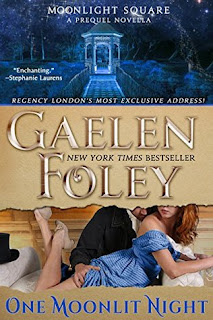Hell is Empty, and All the Devils Are Here by Mark Rounds
In “Hell is Empty, and All the Devils Are Here” the very high quality of the writing is immediately attractive. Without doubt this is one of the better contemporary apocalyptic novels, with a storyline which presents an acceptable reality, leading to highly believable action. It is not a reality which one would wish to experience, in which a viral plague, produced and dispersed by a highly placed but unrevealed cabal, overturns the order of the world.
It is well known that in such fictional situations the human spirit tends to rise and burn brightly in certain individuals. These become leaders, resolving the situation as best they can, and in “Hell is Empty” there is an abundance of such people, both male and female.
They appear as strong individuals, but as characters in a novel, they are somewhat undeveloped. Perhaps this is to be expected. In an apocalyptic survival story, with a strong military color, individual character growth will take second place to the action; and throughout the course of the book the inexorable development of the plague itself is the main focus of the storyline.
The survivor characters are all firmly identified with the military and law enforcement arms of society. They are calm and resourceful. They are very knowledgeable and capable in all areas, from being able to produce the statistical information needed to understand the spread of the disease to the planting of home-made napalm bombs to protect their houses, not to mention fighting off bike gangs.
It is this reassuring quality which the author personifies in the chief character, Chad. It is a strength which carries him and his family, together with his equally capable and experienced friend, the somewhat enigmatic Dave, through the first stages of survival.
Rounds knows what makes a compelling story. There is a villain, an unpleasant “spook”, high in the echelons of Homeland Security, the creature of the faceless evil. Macklin is a character equally as strong as those he opposes, and through him the author achieves a balance of understanding between how the forces of evil operate and how the forces of good get along in opposition.
If the title of the novel has been taken from Act I of Shakespeare’s play “The Tempest”, another Shakespearean allusion can perhaps be seen at work in the action in general. In “Hamlet” Polonius advises his son to avoid getting into trouble but if he finds himself in it, he is to make sure that he gives a good account of himself. In this book the positive characters do exactly that. Although the infected plague victims act in a traditionally terrifying zombie-like manner without actually being corpses, the uninfected survivors manage to cope without sacrificing too much of their basic human generosity of spirit.
The plot is tight and fast and the passing of time is handled very effectively through the use of datelines. If these had not been included it would be difficult to follow the events as they unfold in different places, but Rounds handles what is in fact a very tricky structural need with the aplomb of a multi-book author. One could wish that these prompts stood out a little more clearly within the text, but they are there, and they certainly help.
The storyline and action are thoroughly authentic. From the first recognition of the plague, Rounds shows what happens in military emergency councils; he reveals the decisions which are made and the plans which are formed. It is quite clear that he intends to suggest that this fictional reality is very close to the reality we all know, and he is completely successful.
Certain editorial errors which seem to identify many online independently published books can be overlooked in the face of Rounds’ accomplished achievement. In full command of a distinctive and persuasive writing style he has presented a knowledgeable, authentic, thoroughly interesting and possibly disturbing, story.
“Hell is Empty and All the Devils Are Here” is highly recommended for general reading, even to those who may feel that stories of the apocalypse are not their preferred genre.
Reviewed by Judith Rook
Judith's Facebook Page








































